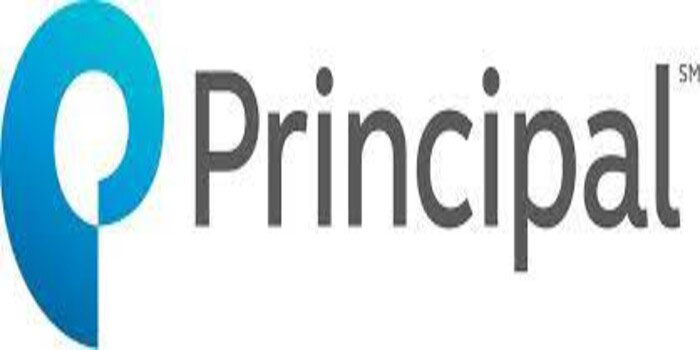Understanding Millennial Homeownership Trends
Mar 19, 2024 By Triston Martin
Generally, we define millennials as individuals born between 1981 and 1996. This particular demographic has significantly reshaped the housing market in recent years. Now entering their late thirties, a pivotal phase for many when considering real estate investments, these oldest millennials are emerging as an influential force within the realm of property ownership. In this article, we will explore statistics and trends surrounding millennial homeownership as well as homebuying, shedding light on not only who comprises these buyers but also what drives them in today's competitive housing market.
Factors Influencing Millennial Homeownership
Millennials' decisions regarding homeownership are influenced by various factors such as economic conditions, encompassing income levels, job stability, and student loan debt. Lifestyle preferences also play a pivotal role. The desire for flexibility in living arrangements, whether urban or suburban/rural, significantly shapes these housing choices among the millennial generation. Cultural shifts, including delayed marriage and family formation, also impact their decisions regarding homeownership.
The long-term financial benefits of homeownership, such as equity accumulation and stability, also hold significant value for millennials. They perceive owning a home not only as an emblem of achievement but also as financial independence. This perception propels them to surmount challenges like exorbitant housing costs and stringent lending standards. Additionally, concerns about the environment coupled with their aspiration for sustainable living shape millennials' inclinations towards energy-efficient homes and eco-friendly neighborhoods.
- Consideration: Millennials often prioritize homeownership as a long-term investment despite short-term affordability challenges.
- Caution: Economic downturns or fluctuations in the housing market can affect millennials' ability to purchase homes, underscoring the importance of financial planning and stability.
Challenges Faced by Millennial Homebuyers
Millennials, despite their escalating presence in the housing market, grapple with numerous challenges while acquiring a home. Affordability, especially in high-cost areas where income growth falls short of housing prices, is an issue that persistently looms large. The scarcity of inventory, competition from older generations and strict lending requirements all magnify the hurdles millennials must overcome when attempting to purchase property.

Millennial homebuyers face an extra challenge which is the burden of their student loan debt. This financial obligation not only affects their capacity to save for a down payment but also influences whether they can qualify for a mortgage. Furthermore, escalating living costs in sought-after urban areas frequently compel millennials to make compromises, either on location or property size, to secure homeownership. To overcome these challenges, one must employ creative financing solutions. Examples include down payment assistance programs and alternative mortgage products, specifically tailored to millennial needs.
- Fact: According to a study by the National Association of Realtors, nearly one-third of millennial homebuyers cited saving for a down payment as the most challenging aspect of buying a home.
- Noteworthy: Despite challenges, millennials are increasingly turning to unconventional homebuying methods, including co-buying with friends or family, to overcome financial barriers and enter the housing market.
Rise of Millennial Homeownership
Millennial homeownership is escalating, despite the challenges. As millennials mature and achieve significant life milestones including marriage, for instance, or starting a family, many are making the switch from renting to owning homes. Furthermore, technology advancements and improved access to online resources have equipped them with greater effectiveness in researching and navigating through homebuying processes.
The desire for stability and control over living arrangements serves as a significant driving factor in the rise of millennial homeownership. Having personally observed the housing market crash of 2008, along with subsequent rental market volatility, many millennials have prioritized homeownership to secure their financial future. Thanks to remote work opportunities, coupled with flexible job arrangements, millennials now consider owning homes not only feasible but attractive even in areas offering lower costs of living or superior lifestyle amenities.
- Noteworthy: Millennials are increasingly interested in turnkey properties and move-in ready homes, prioritizing convenience and minimizing renovation costs.
Demographic Composition of Millennial Homebuyers
Popular belief contradicts the notion that millennial homebuyers form a homogeneous group. They span diverse backgrounds and occupy varied professions, ranging from affluent professionals with dual incomes to those facing financial constraints due to reduced wages and increased debt burdens and exhibit different financial situations. Stakeholders in the real estate industry must grasp the nuanced demographics within this generation.

The research underscores the significant influence of cultural diversity on millennial homebuyers' preferences and priorities. It is a shaping force. Targeted policies and initiatives must address disparities such as systemic discrimination and limited access to mortgage credit often pose additional barriers for minority millennials including African American and Hispanic individuals in their pursuit of homeownership. We need specific interventions promoting equal homeownership opportunities across all demographic groups within the expansive millennial cohort.
- Fact: According to the Urban Institute, the homeownership rate among white millennials is significantly higher than among their Black and Hispanic counterparts, highlighting racial disparities in the housing market.
- Noteworthy: Millennial homebuyers prioritize neighborhoods with diverse amenities and inclusive communities, reflecting their values of inclusivity and social responsibility.
Implications for the Housing Market
Millennial homebuyers' escalating presence significantly impacts the housing market. Builders and developers adapt to accommodate their preferences for affordability, sustainability, and technology integration in new home construction. Meanwhile, by leveraging digital platforms and social media, real estate professionals reach out to millennial clients. They provide personalized services specifically tailored to these millennials' needs.
The rise of millennial homeownership indeed drives demand for housing in urban and suburban areas. These locales offer walkable amenities, have easy access to public transportation, and are conveniently close to employment centers. This shift is a paradigm change in housing preferences. It presents an opportunity not only for revitalizing urban neighborhoods but also for reimagining suburban developments. It is a chance to cater specifically to the evolving needs of millennial homebuyers. Theres an increasing demand for smaller, more efficient homes accompanied by multi-use spaces. This is shaping architectural and interior design trends within the housing market.
- Consideration: Millennials prioritize home features that support a balanced lifestyle, such as home offices, outdoor living spaces, and sustainable design elements.
- Caution: Real estate professionals must adapt their marketing strategies to effectively communicate with millennial clients through digital channels and social media platforms to remain competitive in the evolving housing market landscape.
Conclusion
In short, the dynamics of the housing market undergo a reshaping due to millennial homeownership and homebuying trends. Stakeholders within real estate industries must comprehend not only statistics but also the challenges and motivations that drive these millennial homebuyers. Considering their ongoing influence on this sector. Adapting strategies in alignment with their ever-evolving needs and preferences emerges as an essential factor for success amidst competitiveness in this field.

What is a Condominium?
Feb 13, 2024
A condominium may offer a more affordable entry into the housing market. However, misconceptions concerning condo ownership frequently prevent prospective buyers from considering them. This article will study some of the most widespread money misconceptions about condos.

February 2023 Student Loan Interest Rates
Dec 17, 2023
Student loans aren't free but may help bridge the gap when other aid forms fall short. More interest is added to your principal balance. The interest rate influences both your overall debt and your regular payment amount

What You Should Consider About The Investment Interest Expense Deduction
Jan 25, 2024
Tax breaks and other provisions exist in the federal tax law to entice financial investments. One of them is the ability to write off interest paid on investments. Although there are limits on the amount and types of investments that qualify for something like the interest deduction, it is possible to write off interest payments made when using borrowed funds for investing purposes. Interest paid on a loan taken out to purchase an investment, for instance, a margin loan or a mortgage on investment property, is an example of investment interest expenditure. Divide the profits and losses from an investment that serves your personal and commercial interests.

When Purchasing A Vehicle, You Should Be Aware of These 5 Costs
Dec 03, 2023
The expense of driving to work, rather than the cost of housing, generally dominates our monthly budgets. Because of the ever-increasing cost of new cars, consumers constantly search for the best deals. Car dealerships still need to turn a profit, though, and one way they accomplish this is by including several "extras" in the final price that weren't originally disclosed

What Are the Community Property Rules for Federal Income Tax Returns?
Feb 19, 2024
The term "community property" describes how a married couple's assets are treated under the law in certain states in the United States. In a marriage, both partners share equally in the breadwinner's earnings and the ownership of all tangible and intangible assets acquired by either partner during the marriage.

7 ways to strengthen your home's refinancing appraisal value
Feb 13, 2024
To buy a new home, you must first refinance the mortgage on the one you already own. This is because if the value of your refinancing evaluation is high, you have a better chance of getting good terms like a lower interest rate and a longer loan term

Understanding Real Estate Investment Trusts (REITs)
Mar 19, 2024
Explore Real Estate Investment Trusts (REITs), their role as investment vehicles, benefits, and how they operate in the finance sector.

Navigating Home Equity Loans
Mar 19, 2024
Uncover the best home equity loan options with a Home Equity Loan Finder. Compare loans easily for informed decisions.

What do we mean by a Policy Loan
Nov 28, 2023
The cash value of a person's life insurance policy is used as collateral for a policy loan given by the insurance company. A "life insurance loan" is one common name for this type of loan. While historically, they had cheap interest rates, this is not necessarily the case currently

What Is A Personal Loan?
Nov 16, 2023
If you can get a better deal elsewhere, going with a personal loan may not be the best alternative. However, there are also many compelling arguments in favor of picking them.

An Extensive Principal Financial Life Insurance Review 2022
Jan 28, 2024
The Principal is an established player in 17 international financial marketplaces. They have only offered term and universal life insurance nationwide; whole life insurance is still in the works. Term insurance premiums and levels of protection can be tailored to each client by a financial advisor.

An Overview of Your Annual Credit Report and How to Use It
Oct 17, 2023
Maintaining or improving your credit and looking out for identity theft symptoms may be aided by checking your credit report. Access your free credit reports each year at AnnualCreditReport.com. You may utilize this portal once per calendar year to obtain a free copy of your credit report from the three main credit reporting agencies as federal law requires